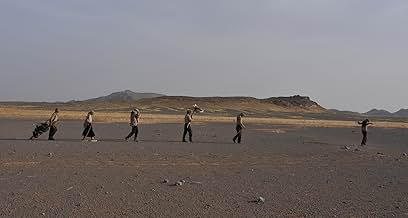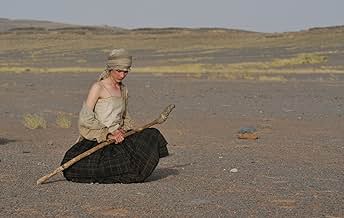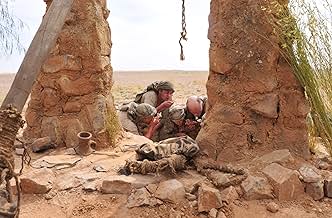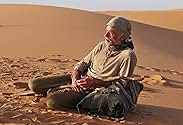- Nominated for 1 Oscar
- 4 wins & 5 nominations total
Gustaf Skarsgård
- Voss
- (as Gustaf Skarsgard)
Zachary Baharov
- Interrogator
- (as Zahari Baharov)
Sally Brunski
- Janusz's Wife, 1939
- (as Sally Edwards)
Dejan Angelov
- Andrei
- (as Deyan Angelov)
Mariy Rosen
- Lazar
- (as Marii Grigorov)
Nikolay Stanoev
- Yuri
- (as Nikolai Stanoev)
- Director
- Writers
- All cast & crew
- Production, box office & more at IMDbPro
Featured reviews
I mean these men escaped a Russian gulag and WALKED 4,000 miles from Siberia to India, come on...
So this movie is based on the 1959 memoir "The Long Walk" (of which there is some debate over its validity). Regardless I really enjoyed it, the story is incredible and I'd been looking foreword to seeing what they would do in the movie version. Throw in a top notch cast as our Siberian gulag escapees (Colin Farrell, Ed Harris, Jim Sturgess) and this should have been fantastic. All I can say there is maybe my expectations were too high because honestly I came away a little disappointed, actually preferring the book.
The movie itself was very long and kind of jumped around. Granted they had a lot of material to cover as our men escape under cover of a snowstorm and undertake a treacherous journey across thousands of miles of hostile terrain. They face freezing nights, lack of food and water, injuries, mosquitoes, an endless desert, the Himalayas, and moral questions of when to leave someone behind.
The cinematography is beautiful, the scenery breathtaking and everyone does a great job. Ed Harris is excellent as the American Mr. Smith (love him) and Colin Ferrell (love him a bit more) was awesome as a tattooed gang-style prisoner, with an amazing Russian accent. As a point of interest his character is not in the book. The scenes in the blizzard and the Gobi desert stand out to me and are brutal but well done. 08.11
So this movie is based on the 1959 memoir "The Long Walk" (of which there is some debate over its validity). Regardless I really enjoyed it, the story is incredible and I'd been looking foreword to seeing what they would do in the movie version. Throw in a top notch cast as our Siberian gulag escapees (Colin Farrell, Ed Harris, Jim Sturgess) and this should have been fantastic. All I can say there is maybe my expectations were too high because honestly I came away a little disappointed, actually preferring the book.
The movie itself was very long and kind of jumped around. Granted they had a lot of material to cover as our men escape under cover of a snowstorm and undertake a treacherous journey across thousands of miles of hostile terrain. They face freezing nights, lack of food and water, injuries, mosquitoes, an endless desert, the Himalayas, and moral questions of when to leave someone behind.
The cinematography is beautiful, the scenery breathtaking and everyone does a great job. Ed Harris is excellent as the American Mr. Smith (love him) and Colin Ferrell (love him a bit more) was awesome as a tattooed gang-style prisoner, with an amazing Russian accent. As a point of interest his character is not in the book. The scenes in the blizzard and the Gobi desert stand out to me and are brutal but well done. 08.11
The story of a small group of people escaping from a Siberian Soviet prison, part of the "Gulag" in wartime and walking 4000 miles to freedom looked a trifle grim in the trailer, but Peter Weir has managed to produce a rather beautiful film out of it, using Bulgaria and Morocco as locales rather than Siberia and the Gobi desert. Only Darjeeling in India plays itself. My only trouble with it is the rather uneven character development. The story lends itself to ensemble playing but we learn little about two or three of the walkers. In the case of the lead character Janusz (Jim Sturgess) who is the source of the story this is explicable as we are seeing the others though his eyes, but it has to be said that both "Mr Smith" (the excellent Ed Harris) and the Girl (Saiorse Ronan) leave a lasting impression.
I know there is some doubt as to the authenticity of the story, taken from a 1955 book by Slavimir Rawicz a former Polish army officer, and indeed what the group are supposed to have done looks impossible but that's not a problem, because the relationships ring true. It is remarkable how an almost random collection of individuals, including one with a very unsavoury past, can, driven by sheer necessity, wind up functioning as a team. Partly this is due to the leader actually having some navigational knowledge and therefore inspiring confidence in the others. Mr Smith remarks early on that the Janusz has a serious weakness; he is kind, but when the chips are down we see that even the hard-bitten Mr Smith is capable of compassion.
Strangely enough, after the initial scenes in the prison camp, and the escape, there is not a lot of drama. The group encounter very few people on their travels and those they do meet take little interest in them (perhaps they had not heard about the bounty for escapees). Obtaining food and water is obviously a big issue, so mind out for the messy hunting scenes. I was astounded at how well their footwear stood up to the punishment; my hiking boots are not good for 400 miles let alone 4000. Actually they must have wandered around a bit - the northern end of Lake Baikal and Lhasa in Tibet are about 1800 miles apart, though the prison camp was somewhere north of the lake. It's also not clear how long the walk took, but at times it seemed like years. Weir's great achievement is to keep us watching a very drawn out tale. Personally I think I would have died of boredom if I had been in this particular walk, if starvation hadn't got me first.
I know there is some doubt as to the authenticity of the story, taken from a 1955 book by Slavimir Rawicz a former Polish army officer, and indeed what the group are supposed to have done looks impossible but that's not a problem, because the relationships ring true. It is remarkable how an almost random collection of individuals, including one with a very unsavoury past, can, driven by sheer necessity, wind up functioning as a team. Partly this is due to the leader actually having some navigational knowledge and therefore inspiring confidence in the others. Mr Smith remarks early on that the Janusz has a serious weakness; he is kind, but when the chips are down we see that even the hard-bitten Mr Smith is capable of compassion.
Strangely enough, after the initial scenes in the prison camp, and the escape, there is not a lot of drama. The group encounter very few people on their travels and those they do meet take little interest in them (perhaps they had not heard about the bounty for escapees). Obtaining food and water is obviously a big issue, so mind out for the messy hunting scenes. I was astounded at how well their footwear stood up to the punishment; my hiking boots are not good for 400 miles let alone 4000. Actually they must have wandered around a bit - the northern end of Lake Baikal and Lhasa in Tibet are about 1800 miles apart, though the prison camp was somewhere north of the lake. It's also not clear how long the walk took, but at times it seemed like years. Weir's great achievement is to keep us watching a very drawn out tale. Personally I think I would have died of boredom if I had been in this particular walk, if starvation hadn't got me first.
I am very surprised that this movie was ever made. After all, the world has seldom really talked about Soviet gulags and it's not like this is a fun or cinematic topic. In addition, it took a lot of trouble to create the sets and film in places such as Bulgaria, Mongolia and India.
The story begins in 1940 in a prison camp in Siberia. The purpose of the camp is to essentially work the prisoners to death and hundreds of them were spread throughout the old Soviet Union. Knowing that they won't survive for long, a small group of prisoners plan an escape. The problem is that such an escape seems impossible, as it is many thousands of miles to freedom....through Siberia and the Gobi Desert in Mongolia AND the Himalayas to freedom in India.
This story is based on a book by a person who claims to have done such an escape. However, the voracity of this account is highly questionable and so the film does not purport to be any one person's tale but a fictionalization of what could have occurred.
The story is very slow and methodical but it also is never dull. I credit that with an excellent script as well as direction by Peter Weir. As for the acting, it was exceptional as well...gritty, realistic and tough. Overall, a rather amazing movie...well worth seeing and important because it brings to light the evil of the Soviet gulag system.
The story begins in 1940 in a prison camp in Siberia. The purpose of the camp is to essentially work the prisoners to death and hundreds of them were spread throughout the old Soviet Union. Knowing that they won't survive for long, a small group of prisoners plan an escape. The problem is that such an escape seems impossible, as it is many thousands of miles to freedom....through Siberia and the Gobi Desert in Mongolia AND the Himalayas to freedom in India.
This story is based on a book by a person who claims to have done such an escape. However, the voracity of this account is highly questionable and so the film does not purport to be any one person's tale but a fictionalization of what could have occurred.
The story is very slow and methodical but it also is never dull. I credit that with an excellent script as well as direction by Peter Weir. As for the acting, it was exceptional as well...gritty, realistic and tough. Overall, a rather amazing movie...well worth seeing and important because it brings to light the evil of the Soviet gulag system.
Having read several books about escapes from Siberia, I was interested in seeing one of them put on screen. I say this because the film is a bit slow in a number of parts so it helps to have a great interest in the subject matter. The film isn't boring - at least, to me - but I can see some people seeing it that way, especially if you're used to today's action movies.
The scenery is magnificent and some of the shots by director Peter Weir are jaw-dropping. This is Weir's first film since the 2003 "Master And Commander: The Far Side Of The World." The man does quality work.
Ed Harris one of the few, if not only, actors in here whose English you can clearly understand, so it's a good idea to play this DVD with subtitles. You get a fair of amount of subtitles with the Russian characters, anyway, but none are distracting from the scenery or story. The characters and acting in here are good, too.
If this subject matter interests you, find the book, "As Far As My Feet Will Carry Me," about a one-man escape from a Siberian Labor Camp following WWII.
The scenery is magnificent and some of the shots by director Peter Weir are jaw-dropping. This is Weir's first film since the 2003 "Master And Commander: The Far Side Of The World." The man does quality work.
Ed Harris one of the few, if not only, actors in here whose English you can clearly understand, so it's a good idea to play this DVD with subtitles. You get a fair of amount of subtitles with the Russian characters, anyway, but none are distracting from the scenery or story. The characters and acting in here are good, too.
If this subject matter interests you, find the book, "As Far As My Feet Will Carry Me," about a one-man escape from a Siberian Labor Camp following WWII.
90U
I think it's always difficult to portray hardship and endurance in films purely because you only experience it for a couple of hours or so. This had me understanding the terrible conditions for real....i think. The search for water in the Gobi desert had me thinking twice about attempting the same thing as a holiday. Make up was fantastic and the bleakness of the scenery was soo beautiful
Did you know
- TriviaThis movie was inspired by the memoir of Slavomir Rawicz depicting his escape from a Siberian gulag and subsequent four thousand-mile walk to freedom in India. Incredibly popular, it sold over five hundred thousand copies, and is credited with inspiring many explorers. However, in 2006, the BBC unearthed records (including some written by Rawicz) that showed he had been released by the U.S.S.R. in 1942. In 2009, another former Polish soldier, Witold Glinski, claimed that the book was really an account of his own escape. However, this claim too has been seriously challenged.
- GoofsJanusz demonstrates a method using shadows of a stick and rock to find the compass direction of south. Yet, many of the scenes show them walking in a direction inconsistent with sun angles i.e. sun at their backs, which would have them walking north.
- ConnectionsFeatured in Breakfast: Episode dated 7 December 2010 (2010)
Details
- Release date
- Countries of origin
- Languages
- Also known as
- Camino a la libertad
- Filming locations
- Production companies
- See more company credits at IMDbPro
Box office
- Budget
- $30,000,000 (estimated)
- Gross US & Canada
- $2,701,859
- Opening weekend US & Canada
- $1,218,868
- Jan 23, 2011
- Gross worldwide
- $24,172,201
- Runtime
- 2h 13m(133 min)
- Color
- Sound mix
- Aspect ratio
- 2.35 : 1
Contribute to this page
Suggest an edit or add missing content




































